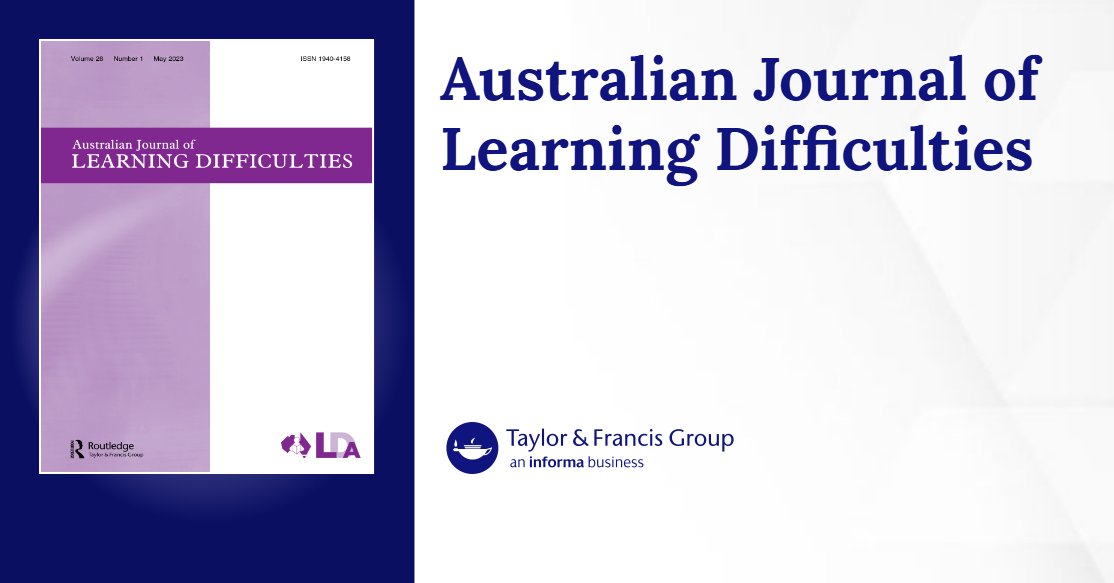
Kathy Rastle
@Kathy_Rastle
Psychology Prof, Language & Reading Research, Editor J. Memory & Language, President, Experimental Psychology Society, http://www.rastlelab.com/impact
researchED Cambridge, October 25th! Applications to speak now open; tickets available here! eventbrite.com/e/140870751509…
After harming millions of students, California finally embraces phonics – San Diego Union-Tribune @ehanford @thegrade_ sandiegouniontribune.com/2025/06/27/aft…
Looking forward to this meeting! I’ll be talking about our research testing the claims of viral campaigns that television subtitles help children learn to read. These claims have been repeated by celebrities, charities and politicians… but what does the evidence say? 📚 🧐💥
New speakers announced every day this week. First up: the amazing @Kathy_Rastle and @s_donarski! Tickets in link below. #rED25 Discounts for groups
New speakers announced every day this week. First up: the amazing @Kathy_Rastle and @s_donarski! Tickets in link below. #rED25 Discounts for groups
researchED National Conference 2025, 6th Sept, featuring a galaxy of edubrains and voices. Come for the reason and evidence, stay for the professional development. New speakers announced every week. Over 150 sessions! Tickets here, discounts for groups. eventbrite.co.uk/e/researched-n…
As Prof Snowling told ex-MP Matt Hancock, who proposed a bill to require screening for dyslexia in primary schools, “We’ve got a screening test already. It’s called the phonics screening check, it’s at the end of Year 1, it’s a statutory assessment.” (TES, 2022)
'Teachers are being tripped up - sent into the classroom without the skills and knowledge they desperately need to enable and empower every child' @jamieoliver buff.ly/zH2Fyje
Beloved programs must be re-evaluated when the evidence no longer supports them. The Rise and Fall of Reading Recovery in New Zealand: A 40-Year Story 1970s Marie Clay develops Reading Recovery (RR), an ambitious early literacy intervention aimed at struggling 6-year-old…
New Zealand has finally dumped Reading Recovery because it “ignored the evidence about the science of how … children best learn to read.” This new paper tracks its rise and demise. tandfonline.com/doi/full/10.10…
The geopolitics of scientific supremacy are changing dramatically. These graphs show the rapid shift of scientific leadership from the US to China - a change well underway before the current defunding of research in the US. linkedin.com/posts/philbaty…
This is wonderful news! The ‘holy grail’ of reading inventions that was birthed in NZ and exported to the world has finally been dumped. Now the way is clear for children to receive scientifically-based instruction and stop being instructional casualties.
New Zealand has finally dumped Reading Recovery because it “ignored the evidence about the science of how … children best learn to read.” This new paper tracks its rise and demise. tandfonline.com/doi/full/10.10…
One of the things that lives in the imagination of people is that “structured” approaches might work in the short term, but fail the child in the long term. Reading Recovery’s demise shows us the opposite is true: short term gains, long term harm.
New Zealand has finally dumped Reading Recovery because it “ignored the evidence about the science of how … children best learn to read.” This new paper tracks its rise and demise. tandfonline.com/doi/full/10.10…
Campaign groups in the US, UK and India claim that TV subtitles will help children learn to read. But our new research led by @a_lopukhina shows that children don't even look at subtitles until they can already read at around 1 word per second.
New Zealand has finally dumped Reading Recovery because it “ignored the evidence about the science of how … children best learn to read.” This new paper tracks its rise and demise. tandfonline.com/doi/full/10.10…

What can children learn about morphology when they read for pleasure? Maria Korochkina and I analysed the words in 1200 books suitable for children and young people to find out! Read the blog post here: rastlelab.com/post/what-can-…

** New resource ** We analysed the characteristics of words in 1200 books for children and young people. Properties of each word (frequencies, etc) are now available in an interactive website. cyp-lex.rastlelab.com
Sound it out: Victorian children improve reading ‘leaps and bounds’ thanks to phonics | Australian education | The Guardian theguardian.com/australia-news…
** Subtitles - not a magic bullet for literacy ** Find out about our new research published in @PsychScience (tinyurl.com/SLSubtitles) @RHULPsychology @RoyalHolloway @notts_psych @NiftyFoxCreativ @RHSocSci @a_lopukhina
The link is here! nature.com/articles/s4153…
I guess nobody really wants to talk about morphology just now, but Maria Korochkina and I just had a really cool paper accepted! Link soon! 📚
Primary educators 👋🏻 I am interviewing teachers for a research project aimed at understanding how teachers learn from each other in the workplace. But my sample is currently very secondary heavy… Could you (please!) spare me an hour of your time this week or next? Thanks!
Excellent short course on 'Supporting all Readers in Secondary School' developed by @ricketts_lara now freely available on @educationgovuk 📚gov.uk/government/pub… @_RHResearch
English is full of “lexical gaps,” words that are implied to exist but don’t, because we borrowed a bunch of words from Latin but not other, related words. Somebody made a chart to show it↓